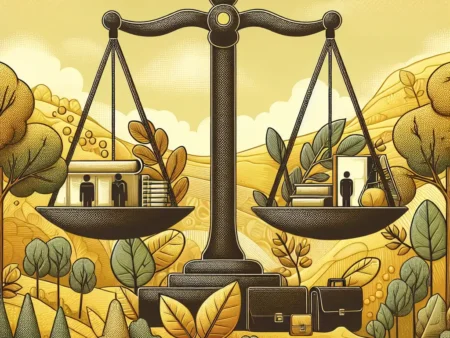Advokat dan HAM bekerja bersama untuk mengatasi ketidakadilan struktural demi mencapai keadilan yang lebih merata.
Advokat dan HAM: Kolaborasi untuk Mengatasi Ketidakadilan Struktural
-
Table of Contents
- Introduction
- The Role of Lawyers in Addressing Structural Injustices
- Legal Aid and Access to Justice
- Challenging Discriminatory Laws and Policies
- The Role of Human Rights Activists in Addressing Structural Injustices
- Raising Awareness and Advocacy
- Supporting Marginalized Communities
- The Power of Collaboration
- Strategic Litigation and Grassroots Mobilization
- Policy Advocacy and Legal Reforms
- Case Study: Collaboration in Action
- Conclusion
Introduction

Indonesia, like many other countries, faces significant challenges in addressing structural injustices. These injustices can manifest in various forms, such as discrimination, inequality, and human rights violations. To combat these issues, collaboration between lawyers (advokat) and human rights activists (HAM) is crucial. This article explores the importance of this collaboration in Indonesia and how it can contribute to overcoming structural injustices.
The Role of Lawyers in Addressing Structural Injustices
Lawyers play a vital role in addressing structural injustices by advocating for the rights of individuals and communities. They have the legal expertise to navigate complex legal systems and challenge discriminatory laws and policies. Lawyers can provide legal representation to marginalized groups, ensuring their voices are heard and their rights protected.
Legal Aid and Access to Justice
One of the key ways lawyers contribute to addressing structural injustices is through providing legal aid and improving access to justice. Many individuals and communities facing injustice lack the financial means to hire a lawyer. Legal aid organizations, often supported by lawyers, bridge this gap by providing free or low-cost legal services to those in need. These organizations help individuals navigate the legal system, file complaints, and seek redress for human rights violations.
Challenging Discriminatory Laws and Policies
Lawyers also play a crucial role in challenging discriminatory laws and policies that perpetuate structural injustices. They can file lawsuits, submit legal petitions, and engage in strategic litigation to challenge laws that violate human rights or perpetuate inequality. By using legal mechanisms, lawyers can bring attention to systemic issues and push for legal reforms that promote equality and justice.
The Role of Human Rights Activists in Addressing Structural Injustices
Human rights activists, often referred to as HAM activists, are individuals or organizations dedicated to promoting and protecting human rights. They work on the ground, raising awareness, advocating for policy changes, and supporting marginalized communities. Collaboration between lawyers and HAM activists is essential to effectively address structural injustices in Indonesia.
Raising Awareness and Advocacy
HAM activists play a crucial role in raising awareness about structural injustices and advocating for change. They conduct research, document human rights violations, and disseminate information to the public and policymakers. By shedding light on these issues, they create public pressure and mobilize support for legal reforms and policy changes.
Supporting Marginalized Communities
HAM activists often work directly with marginalized communities affected by structural injustices. They provide support, empower individuals to assert their rights, and facilitate community organizing. By working closely with affected communities, HAM activists can identify systemic issues and develop strategies to address them effectively.
The Power of Collaboration
While lawyers and HAM activists have distinct roles, their collaboration is essential to effectively address structural injustices in Indonesia. By combining legal expertise with grassroots activism, they can create a powerful force for change.
Strategic Litigation and Grassroots Mobilization
Collaboration between lawyers and HAM activists can lead to strategic litigation combined with grassroots mobilization. Lawyers can identify cases with the potential to set legal precedents and challenge systemic injustices. HAM activists can then mobilize communities, raise awareness, and provide support to those involved in the litigation process. This combination of legal action and grassroots mobilization can create significant pressure for change.
Policy Advocacy and Legal Reforms
Lawyers and HAM activists can also collaborate on policy advocacy and legal reforms. Lawyers can provide legal analysis and expertise to support the development of policies that promote human rights and equality. HAM activists can leverage their networks and advocacy skills to push for the implementation of these policies. By working together, they can influence legislative processes and bring about meaningful change.
Case Study: Collaboration in Action
One example of successful collaboration between lawyers and HAM activists in Indonesia is the fight against land grabbing. Land grabbing, where powerful entities unlawfully seize land from local communities, is a significant issue in the country. Lawyers have played a crucial role in representing affected communities, filing lawsuits, and challenging the legality of land grabs. HAM activists have supported these efforts by raising awareness, organizing protests, and advocating for policy changes. This collaboration has resulted in some victories, with courts ruling in favor of communities and leading to the return of unlawfully seized land.
Conclusion
Addressing structural injustices in Indonesia requires collaboration between lawyers and human rights activists. Lawyers provide legal expertise, challenge discriminatory laws, and improve access to justice. Human rights activists raise awareness, support marginalized communities, and advocate for policy changes. Together, they can create a powerful force for change, combining strategic litigation with grassroots mobilization and policy advocacy. By working collaboratively, lawyers and HAM activists can contribute to overcoming structural injustices and promoting a more just and equal society in Indonesia.







